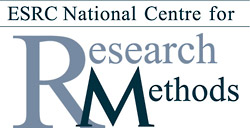University of Sussex / National Centre for Research Methods 
Developments in biomedical ethics nationally and globally are transforming research practices and data storage of medical research. Social scientists working on medical issues and on research in collaboration with biomedical researchers usually need to gain approval from the appropriate medical research ethics committee. This needs to be demonstrated prior to publication. This engagement in which social scientists have to adapt to codes and practices of biomedical ethics raises important ethical dilemmas and questions, and foreshadow wider debates concerning in social sciences, and in particular the legal and moral arguments for social scientists to adopt ethical codes derived from biomedicine. Both general and practical questions arise and these questions are increasingly important in the context of globalisation and pandemics diseases that transcend national borders? Can there be one ethical code, or many depending on discipline? What are the implications for social science research practices of adapting to (adopting) biomedical ethics codes. Are these different for different social sciences? Are the issues raised in biomedical engagement any different from those raised in other social research? Should there be a single code and mode of acceptable practice globally, or differences depending on country, or indeed depending on other social differences such as poverty, education and literacy, religion. How have these dilemmas been resolved in different places. The approach is to unite those working on these issues in the UK and overseas, in discussion with (a) senior members of UK and overseas biomedical research ethics committees, and (b) social scientists who have been engaged in developing new approaches to the ethics of biomedical research in developing countries.